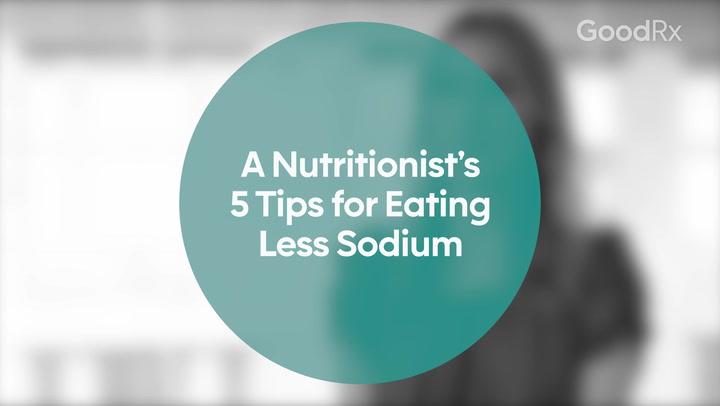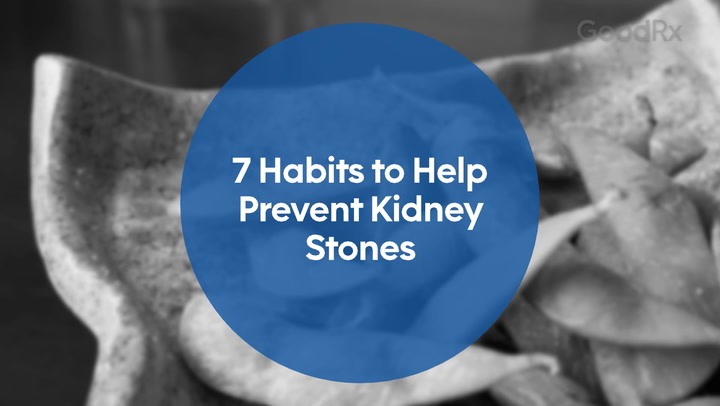
The 5 Best Drinks If You Have Bad Kidneys (and a Few to Avoid)
Key takeaways:
If you have kidney disease, what you drink and how much you drink can affect your kidney function.
There’s research to show that some drinks and juices can slow the decline of kidney function. Drinks like water, low-fat milk, and coffee can help protect the kidneys.
When it comes to kidney health, moderation is really important. To function at their best, your kidneys need the right balance of fluid and specific nutrients.
Table of contents

The kidneys are constantly filtering the fluids in your body to get rid of toxins and waste. So, it probably comes as no surprise that what you drink can affect your kidney function. And if you have any type of kidney disease — whether it’s from a chronic condition or a temporary illness — paying attention to your fluid intake is particularly important.
We’ll go through five drinks and juices that can help your kidneys function at their best.
1. Water
About 60% to 70% of your body is water. And your kidneys rely on water to make urine, which is how they remove waste from your body. Water also helps to keep your blood vessels open so that blood can reach your organs, including your kidneys.
You help protect your kidneys when you drink enough water each day. One study showed that people who drank almost 2 L of water daily were less likely to develop kidney problems. This was especially true for older adults and men.
Drinking water when you have kidney disease
But what about people who already have decreased kidney function? Some studies have looked at whether drinking water can increase your glomerular filtration rate (GFR), which is a way to measure kidney function. The higher your GFR, the better your kidneys function.
One study found that when people with kidney disease drank more water, their GFR didn’t increase. But another study showed that people who drank more water were more likely to have a higher GFR. And, similarly, people who drank less water were more likely to have a lower GFR.
Is coffee bad for kidneys? Take a deeper dive into how coffee impacts kidney and liver health.
Drinks that lower blood pressure: Maintaining a normal blood pressure is one of the best ways to protect your kidneys. These drinks can help.
How much water should you drink? The answer is a bit more complicated than the repeated “8 glasses a day.” Learn what’s the right amount for you.
So, at the end of the day, it’s unclear if drinking water can improve kidney function in people with kidney disease. But if you have low kidney function, staying hydrated can help keep your kidneys working better. Severe dehydration can actually lead to kidney damage, making kidney disease worse. And even mild dehydration, if it happens too often, can cause kidney damage. Dehydration ultimately leads to the buildup of waste in your body, making your kidneys work harder to remove it.
Some people with chronic kidney disease may need to monitor their fluid intake more than others. If you have late-stage kidney failure or require dialysis, too much fluid can overwhelm your kidneys and cause other health issues. A healthcare professional can help you figure out the right amount of fluid for you, based on your kidney function and overall health.
2. Low-fat milk
One long-term study found that people with chronic kidney disease who drank low-fat milk had a slower decline of their kidney disease. In other words, their kidneys worked better for longer.
Scientists think that certain nutrients in dairy — like calcium, potassium, vitamin D, and magnesium — may help lower blood pressure and protect the kidneys. Of note, the researchers didn’t see that same benefit in people who drank high-fat milk. So it’s possible that too much fat content may decrease the potential benefits of milk.
3. Coffee
Have you ever wondered, “Is coffee bad for your kidneys?” This is a common question on people’s minds. But experts actually believe that coffee may help protect your kidneys. Research shows that coffee consumption is associated with a lower risk of developing kidney disease. This may be because it improves blood sugar and lowers inflammation in the kidneys. But it’s not clear if it can slow how quickly kidney disease worsens.
In one study, participants who drank 1 or more cups of coffee daily had a lower risk of death from kidney disease compared to people who never drank coffee. Another study found that people who drank 3 cups of coffee a day had an even lower risk of disease.
But these studies didn’t find a similar benefit in people who already had poor kidney function. So, coffee may not have the same protective effects for people with kidney disease.
If you have kidney disease and like drinking coffee, keep these things in mind:
Avoid excessive amounts of coffee. That’s because large amounts of coffee can be high in potassium, which can lead to high potassium levels in someone with bad kidneys. To make sure you’re not drinking too much, aim for fewer than 3 cups a day.
Drink plain, black coffee. Added ingredients can be harmful. For example, syrups can be high in potassium and phosphorus. They may also contain a lot of sugar.
Consider drinking decaf. That’s if regular coffee increases your blood pressure. More research is needed to know whether caffeine adds to the health benefits of coffee. But experts do know that a spike in blood pressure is hard on the kidneys.
4. Green tea
Green tea contains catechins, which are antioxidants. Antioxidants help decrease inflammation in the body, which can be helpful for your kidneys. Green tea has also been shown to decrease the risk of kidney stones.
In particular, green tea contains the catechin epigallocatechin-3-gallate (EGCG), which may be helpful for people with kidney disease. Several studies have shown that it can slow the decline of chronic kidney disease. But it’s important to note that these studies were done in the lab in “disease models,” not in actual humans.
So, just like coffee, it’s best to drink green tea in moderation if you have kidney disease.
5. Unsweetened cranberry juice
You may have heard that cranberry juice is good for kidneys. Cranberries are rich in flavonoids, another type of antioxidant that may be particularly good for kidneys.
Many people drink cranberry juice specifically to help prevent UTIs (urinary tract infections). And research suggests it may help prevent bacteria from sticking to the urinary tract.
People with kidney disease need to be extra careful about preventing UTIs. Some UTIs can lead to pyelonephritis — an infection in the kidneys. Scientists think that cranberries also interfere with bacteria sticking to the kidneys, just like they prevent it from sticking to the urinary tract.
Look for low-sugar or unsweetened options. Extra sugar can increase blood sugar and blood pressure, both of which are harmful to your kidneys.
What drinks should people with kidney disease avoid?
If you have kidney disease, do your best to avoid or cut back on:
Cola beverages: Studies show that drinking 2 or more cola drinks a day may be harmful for people with kidney disease. Experts believe the phosphoric acid in cola drinks can strip calcium from bones, increasing the risk of kidney stones and kidney failure.
Alcohol: Drinking alcohol makes your kidneys less able to filter your blood and increases blood pressure, which can lead to kidney damage.
Sugary beverages: Sweetened drinks can harm the kidneys in several ways. They increase blood sugar, blood pressure, and inflammation in your body. Sugary drinks can also contribute to weight gain, which further increases the risk for these harms for your kidneys.
There’s some evidence that drinking 2 or more diet colas a day may also worsen kidney function. But the study was done only in white females, so more research is needed in different populations of people.
Frequently asked questions
Carbonated water, like seltzer water, isn’t bad for your kidneys. But other ingredients in carbonated beverages may be harmful. Carbonated sodas often contain phosphoric acid and added sugar. The phosphoric acid can remove calcium from bones. This can increase the risk of kidney stones and kidney damage. And the added sugar can increase your risk of high blood pressure and diabetes, both of which increase your risk for kidney disease.
Lemon water is regular water with fresh lemon slices or juice. It’s good for the kidneys because it helps to prevent kidney stones. If you’re prone to the most common type of kidney stones (calcium oxalate stones), the citrate in lemon juice can help prevent these from forming. In fact, the National Kidney Foundation recommends lemon water as a preventative measure.
Beet juice isn’t bad for your kidneys — in fact, quite the opposite. Research suggests that drinking beet juice can help lower your blood pressure. And keeping your blood pressure within a normal range is one of the best things you can do to protect your kidney health.
One small study of people with chronic kidney disease suggests that drinking beetroot juice may help slow down the progression of heart and kidney disease. But this is early research, so it’s too early to draw any conclusions.
It’s also important to note that beet juice contains oxalates. This can be a problem for people who are prone to a certain type of kidney stone (calcium oxalate stones). But for most people, oxalate foods don’t pose any significant health risks.
The bottom line
When it comes to keeping your kidneys healthy, what you drink can make a difference. To help protect your kidneys, drink beverages like plain water, coffee with low-fat milk, and unsweetened cranberry juice. But like most diet and nutrition advice, the research in these areas is constantly evolving. The safest approach is to drink your beverage of choice in moderation.
Why trust our experts?


References
Amin, R., et al. (2022). Therapeutic potential of cranberry for kidney health and diseases. eFood.
Bao, H., et al. (2016). The green tea polyphenol(—)-epigallocatechin-3-gallate and its beneficial roles in chronic kidney disease. Journal of Translational Internal Medicine.
Cai, X., et al. (2021). Sugar-sweetened beverage consumption and mortality of chronic kidney disease: results from the US National Health and Nutrition Examination Survey, 1999–2014. Clinical Kidney Journal.
Clark, W. F., et al. (2018). Effect of coaching to increase water intake on kidney function decline in adults with chronic kidney disease: The CKD WIT randomized clinical trial. JAMA.
Gopinath, B., et al. (2016). Associations between dairy food consumption and chronic kidney disease in older adults. Scientific Reports.
Hisano, M., et al. (2012). Cranberries and lower urinary tract infection prevention. Clinics.
Hu, E. A., et al. (2018). Coffee consumption and incident kidney disease: Results from the atherosclerosis risk in communities (ARIC) study. American Journal of Kidney Diseases.
Hu, E. A., et al. (2020). A healthy beverage score and risk of chronic kidney disease progression, incident cardiovascular disease, and all-cause mortality in the chronic renal insufficiency cohort. Current Developments in Nutrition.
Kemmner, S., et al. (2017). Dietary nitrate load lowers blood pressure and renal resistive index in patients with chronic kidney disease: A pilot study. Nitric Oxide.
Kidney Research UK. (n.d.). Why hydration is important for kidney health.
Lo, J. A., et al. (2021). Impact of water consumption on renal function in the general population: A cross-sectional analysis of KNHANES data (2008–2017). Clinical and Experimental Nephrology.
National Institute of Diabetes and Digestive and Kidney Diseases. (n.d.). Kidney infection (pyelonephritis). National Institute of Health.
National Kidney Foundation. (n.d.). Alcohol and your kidneys.
National Kidney Foundation. (n.d.). Six easy ways to prevent kidney stones.
National Kidney Foundation. (2014). Say no to that diet soda?
National Kidney Foundation. (2017). Coffee and kidney disease: Is it safe?
Park, S., et al. (2017). Association of coffee consumption with total and cause-specific mortality among nonwhite populations. Annals of Internal Medicine.
Rode, J., et al. (2019). Daily green tea infusions in hypercalciuric renal stone patients: No evidence for increased stone risk factors or oxalate-dependent stones. Nutrients.
Van Westing, A. C., et al. (2020). Diet and kidney function: A literature review. Current Hypertension Reports.
Wang, H., et al. (2021). Higher volume of water intake is associated with lower risk of albuminuria and chronic kidney disease. Medicine.

























